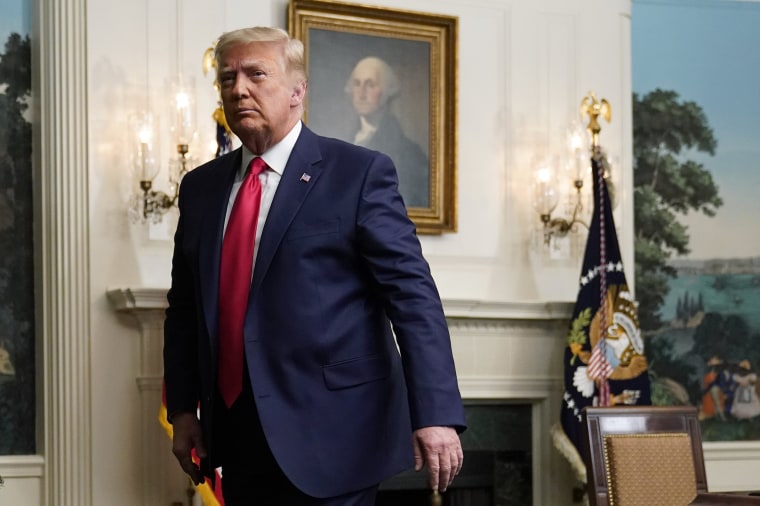Almost immediately after the 2016 elections, Jill Stein, the Green Party's nominee, announced plans to launch recount efforts in key states. The plan did not go unnoticed: Stein raised more than $7.3 million quite quickly.
Four years ago this week, then-President-elect Donald Trump mocked the gambit's failure, writing on Twitter that this was "just a Stein scam to raise money!"
The trouble, of course, is that Trump has proven himself to be a great admirer of scams to raise money -- the Republican ran a fraudulent charitable foundation, for example, and created a fraudulent "university" that was designed to rip off its "students" -- and in the aftermath of the 2020 elections, it's hard not to wonder whether he was criticizing Jill Stein or was inspired to launch a scam of his own.
Since losing his re-election bid, Trump hasn't just been lying furiously to his followers, he's also been aggressively pleading with them to send him money. As the New York Times reported overnight, those appeals have worked to extraordinary degree.
President Trump has raised about $170 million since Election Day as his campaign operation has continued to aggressively solicit donations with hyped-up appeals that have funded his fruitless attempts to overturn the election and that have seeded his post-presidential political ambitions, according to a person familiar with the matter.
I can appreciate why all big fundraising tallies start to blur together after a while, but for a failed candidate to raise $170 million in the month after his defeat is astonishing. We'd expect to see numbers like these in the weeks leading up to Election Day, not the weeks following it.
The scheme has been effective in large part because it's a scam wrapped in a scam: as we recently discussed, Team Trump starts by falsely telling its followers that there's an election conspiracy, which it then follows by encouraging supporters to help combat the made-up conspiracy by sending the president's political operation money.
Donors are told the money was needed for an "Election Defense Fund." But those who grab their wallets probably won't realize that their money may not go toward election lawsuits at all.
As the New York Times' report added, "In reality, the fine print shows that the first 75 percent of every contribution currently goes to a new political action committee that Mr. Trump set up in mid-November, Save America, which can be used to fund his political activities going forward, including staff and travel. The other 25 percent of each donation is directed to the Republican National Committee."
And what, pray tell, can Trump's "Save America" operation do with all of this money? A Washington Post analysis explained:
Trump's Save America PAC is a leadership PAC, a type of committee formed by current or former elected officials. Many prominent members of Congress, past and current, have similar committees, allowing them to take contributions that can be used to contribute to other candidates or to fund political activity. Or, really, to fund basically anything. The money in the Save America PAC, unlike money contributed to a standard campaign committee, can be used to benefit Trump in innumerable ways. Memberships at golf clubs. Travel. Rallies. Even payments directly to Trump himself, as long as he declares it as income.
What do you suppose the odds are that the outgoing president's followers are reading the fine print and familiarizing themselves with federal election laws before throwing money at Trump's operation?
Making matters just a little worse, it creates a perverse set of incentives: Trump could honor his own country's democracy enough to respect this year's election results, but the moment he acknowledges his defeat, prospective donors may no longer feel the need to contribute to the "Official Election Defense Fund" or pump money into the "recount account."
The longer the president keeps the anti-election charade going, the more opportunities he'll have to bring in more cash.
There's no reason to think the spigot will soon close. The Times' report added, "Donors on Mr. Trump's website are opted in with a prechecked box to make monthly contributions."
Reuters recently spoke to some die-hard Trump supporters, including Caleb Fryar, a 26-year-old Texan who said he finds it hard to fathom that the Republican president might be duping his followers.
"If I'm being manipulated by Trump ... then he is the greatest con man that ever lived in America," Fryar said.
Reading about Trump's lucrative fundraising scam, I can't quite get that quote out of my head.
